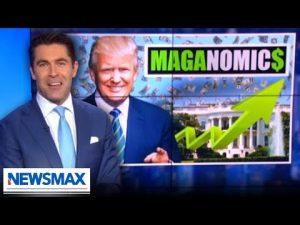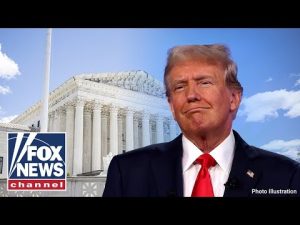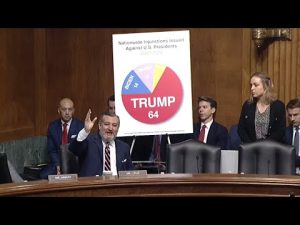President Donald Trump’s sweeping tariffs have ignited a fierce debate, with Wall Street and global markets reeling while conservative voices champion the move as a necessary reset. Here’s the breakdown of why tariffs are causing upheaval:
###
– : The Dow Jones lost over 2,231 points in a single day, while the S&P 500 and Nasdaq saw their worst weekly drops since 2020. Global markets mirrored the turmoil, with Tokyo’s Nikkei 225 crashing 7.8% and Germany’s DAX briefly plunging 10%.
– : JPMorgan CEO Jamie Dimon warned tariffs “will likely increase inflation” and heighten recession risks. Goldman Sachs raised U.S. recession odds to 45%, citing trade war impacts and retaliatory measures.
– : Billionaire Bill Ackman criticized Trump’s strategy, arguing collapsing markets weaken U.S. negotiating power. Former Treasury Secretary Larry Summers called the crisis “self-inflicted,” blaming Trump’s disregard for economic orthodoxy.
###
– : Trump’s tariffs—a 10% baseline on all imports plus up to 50% on China—directly challenge decades of globalization. Critics argue this disrupts supply chains, raises consumer prices, and risks fragmenting the U.S.-led economic order.
– : Multinational corporations face higher production costs and uncertainty. Tech analysts warn tariffs could “take the U.S. tech industry back a decade” as China accelerates its domestic capabilities.
###
– : Supporters like BlazeTV’s Liz Wheeler argue tariffs are “tough love” to rebuild U.S. manufacturing, eliminate trade deficits, and stop reliance on adversarial nations like China. “The standard of living for Americans will vastly increase,” insists economist Michael Busler.
– : Wheeler emphasizes tariffs as a tool to combat fentanyl imports and protect jobs, dismissing critics as “panicans” (Trump’s term for weak opponents). The Blaze Media editorial board frames tariffs as a corrective to “50 years of decline” in U.S. industrial might.
– : Trump claims tariffs pressure trading partners to offer concessions, citing outreach from 50 nations seeking deals. Commerce Secretary Howard Lutnick calls it a “reset” to assert U.S. dominance.
###
– : Mainstream economists view tariffs as regressive taxes on consumers, costing households more than any theoretical tax cuts. Conservative proponents dismiss this as elite myopia, prioritizing national sovereignty over short-term market stability.
– : Trump’s base sees tariffs as a rebuke of globalist policies that outsourced jobs, while Wall Street fears disrupted profits and investors flee volatility. The clash reflects deeper tensions between populist nationalism and financial establishment priorities.
In short, Trump’s tariffs have become a lightning rod for America’s ideological divide: a bet on economic independence that risks immediate chaos for a promised renaissance of “Made in the USA” prosperity.







